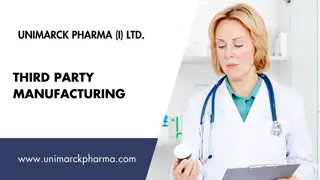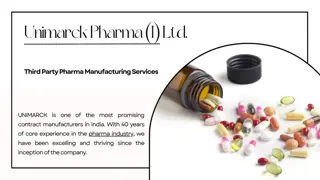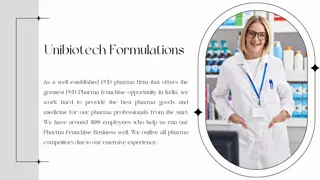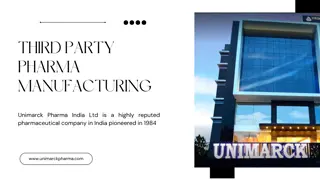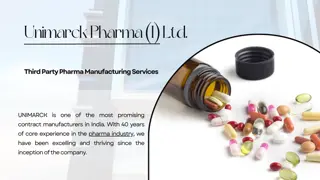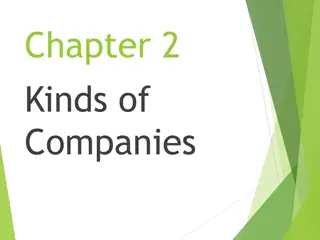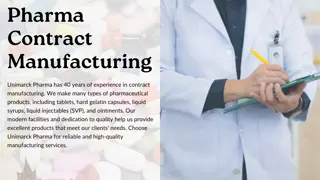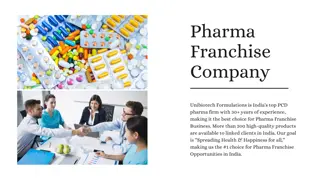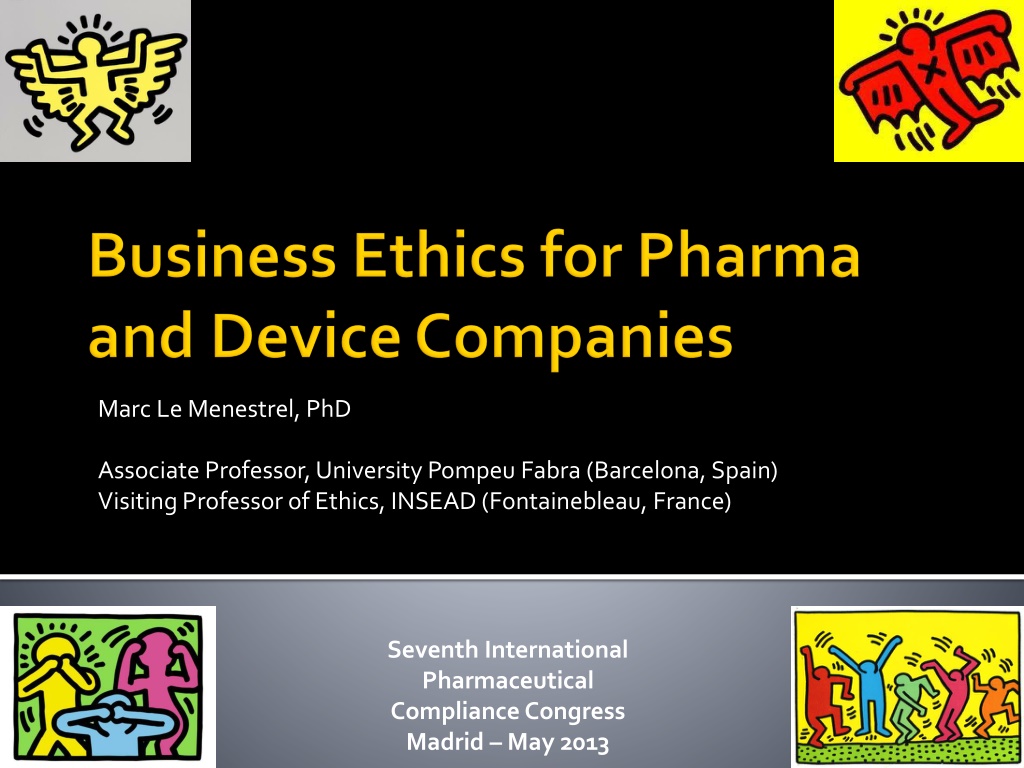
Exploring Ethics in Business and Society
Delve into the ethical considerations surrounding business practices, societal impacts, and personal integrity as discussed by Marc Le Menestrel, PhD, in various contexts such as academia and industry. Reflect on questions of ethical behavior, compliance, and transparency in a thought-provoking manner, considering the complexities and consequences of ethical decision-making.
Download Presentation

Please find below an Image/Link to download the presentation.
The content on the website is provided AS IS for your information and personal use only. It may not be sold, licensed, or shared on other websites without obtaining consent from the author. If you encounter any issues during the download, it is possible that the publisher has removed the file from their server.
You are allowed to download the files provided on this website for personal or commercial use, subject to the condition that they are used lawfully. All files are the property of their respective owners.
The content on the website is provided AS IS for your information and personal use only. It may not be sold, licensed, or shared on other websites without obtaining consent from the author.
E N D
Presentation Transcript
Marc Le Menestrel, PhD Associate Professor, University Pompeu Fabra (Barcelona, Spain) Visiting Professor of Ethics, INSEAD (Fontainebleau, France) Seventh International Pharmaceutical Compliance Congress Madrid May 2013
Thinking about ethics Thinking about ethics Acting with/without ethics ethics Talking about ethics ethics
Is business ethical? Is the pharmaceutical industry ethical? Is your company ethical? Are you ethical?
Looking at the bad side Looking at the good side You feel good, full of energy You are honest It feels bad You may not be as credible as you want Purely ethical Purely unethical But you are more aware and anticipate ethical risks And you may be blind to ethical risks Our ethical judgments are boundedand biasedby our emotions, our self-interest, our mental habits and self- image, our cultural context, our work environment and our power to act. This phenomenon is not necessarily intentional, but it can have significant consequences. We can develop, refine and structure our ethical consciousness. It requires to open our mind and be able to think beyond the justification of our ethical opinion. It necessitates training and effort, outsideour zone of comfort Marc Le Menestrel, UPF & INSEAD
To which extent is this bad? To which extent is this good? Which stakeholders can benefit? How much? When? Which stakeholders can be harmed? How much? When? Is this right? Does it comply? Is this legal? Does it respect the spirit of the law? Is this respecting ethical principles, code of values? Can this be universalized? Can this be wrong? Against compliance? Against the law? Against some ethical principle? What if everyone does the same? All the time? What good feelings do I have? What virtue do I incarnate? Why is this respecting my personal integrity? Am I having bad feelings? A sense of discomfort? An early warning signal inside? What would I like to be known? To be transparent? is transparent? Would this be better kept secret? Is this taboo? Could it be publicly known? Marc Le Menestrel, UPF & INSEAD
Unethical Issues in the pharmaceutical industry Exploratory Research Pre-clinical development Clinical development Registration Procurement and manufacturing Marketing Distribution and Phase IV Recycling R&D Laboratory development Commercialization Animal testing Drug registration Drug recycling Research Clinicaltrial Mass production Marketing & post-marketing Control of publication and research outcomes Clinical trial disclosure Patent protection and extension with lobbying Air emission Respect for persons, beneficence and justice Political contributions to promote legislation friendly drug to manufacturers Solid and hazardous waste R&D for orphan drug and neglected diseases Children and women in clinical trial Drug safety in manufacturingm distribution and post- marketing processes Spill and release in water R&D for developing countries diseases Clinical trial in developing countries Pricing for medicine Hazardousmaterial Water waste Influence over professionals Animal welfare Biodiversity Labeling and promotional information and material Drugpricingtransparency Source: Evaluation of CSE performance , Palazzo, G. et al, UNIL 2010
ETHICS Unethical Ethical 1 2 COMPLIANCE Yes 3 4 No There are many ways for being compliant and unethical. There are many ways to be ethical and not compliant. Did you study them? Marc Le Menestrel, UPF & INSEAD
Ethical Values Less ethical More Ethical Better Business-Interest Worse There is no point in talking about ethics in business if we don t talk about how much it costs Marc Le Menestrel, UPF & INSEAD
Ethical Values Less ethical More Ethical Better Rational Financial Interest Worse Irrational With this discourse, business should be ethical if and only if this serves its financial interest. Taught all over the globe, it logically implies tragic consequences Marc Le Menestrel, UPF & INSEAD
Ethical Values Less ethical More Ethical Better Financial Interest Irrational Rational Worse Compliance is supposed to be an absolute criterion of choice. In practice, we deny, hide and externalizethe non-compliant decisions. Marc Le Menestrel, UPF & INSEAD
Ethical Values Less ethical More Ethical Better Rational Financial Interest Worse Business interest and ethics are supposed to always combine. In practice, there are many situations in which ethics does not pay, and CSR may cover them up, for the best or the worse Marc Le Menestrel, UPF & INSEAD
Ethical Values Less ethical More Ethical From here, a reactive strategy mitigates ethical risks to avoid losing everything Priority to interest Better Ideal ? ? Priority to ethics Worse Irrational From here, a proactive strategy should help you to reach the ideal More than a discourse, ethical rationality teaches you to draw a line in the grey zone An art of surprise, ethics is a way to manage the unexpected. Marc Le Menestrel, UPF & INSEAD
Who do you trust enough to talk honestly? By whom do you want to be trusted?
Ethical questions are value-loaded, emotional and can be dishonestly biased towards the unethical side. Ethical denials and justifications may nurture negative emotions in others. Ethical answers which strongly ascertain the ethical side are not necessarily perceived credible. Ethical answers which demonstrate awareness and consciousness of the unethical side, as well as pro-activeness towards the ethical sidemay enhance sincerityand trust.
Ethical thinking occurs in a uncomfortable grey zone. Are you ready to enumerate all the things that you do wrong? You will be fully empowered to analyze the problems Ethical action is about drawing a line in the grey zone. Do you know the values for which you are ready to sacrifice some perceived business interest? You will generate resources to invest in a proactive ethical culture Ethical credibility & trust requires to be honest about bad aspects. Are you ready to discuss your unethical side? You will create an alliance of people prepared to help you
Thank you Artwork Keith Haring





